Essential oils are hot right now. Besides smelling wonderful, fighting bacteria, and boosting mood, they have been shown to work wonders on the skin.
With literally hundreds of essential oils to choose from, it can be challenging to know which works best for your skin.
We’ve compiled a list of the best essential oils for skin based on your skin type.
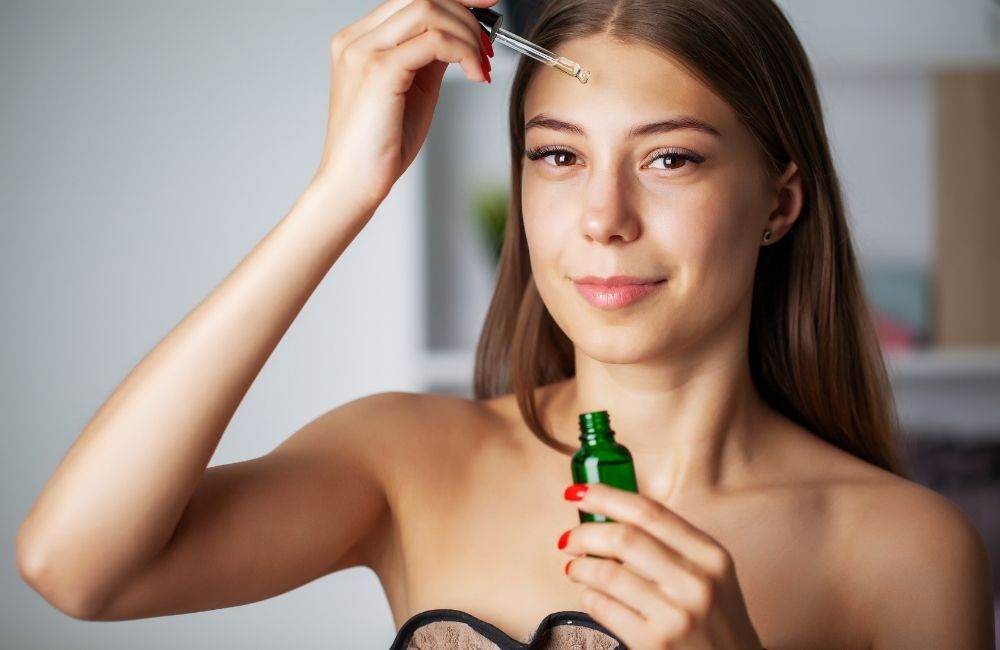
Essential Oils for Acne-prone Skin
In the United States alone, close to 40 million to 50 million people struggle with acne.
Even though acne mainly affects teens, it can affect adults too. More than half of women and 40% of men over 25 have some degree of facial acne, a study found.
The key to treating acne-prone skin is removing excess oils and germs without drying it out. An inflammatory condition can also contribute to breakouts.
Luckily, several essential oils can help treat and prevent acne.
Lemon
Lemon essential oil is a known antibacterial and anti-inflammatory agent.
Obtained from the citrus fruit’s peel, it may aid in the battle against inflammation and free radicals that lead to acne and photoaging.
Oregano
Since oregano oil targets acne-causing bacteria, it’s great for fighting acne.
A 2018 study found that oregano essential oil exerted the most effective antimicrobial effects on acne-causing bacteria, PP. acnes and Staphylococcus epidermidis.
The oil also thins out oilier skin, which helps prevent pores from getting clogged with dead skin cells.
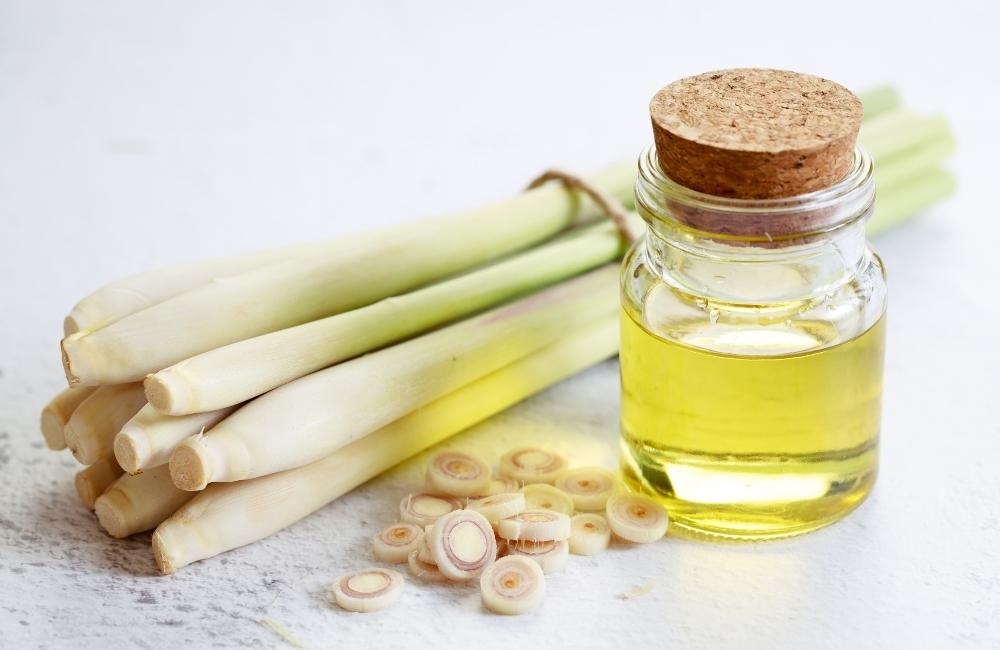
Lemongrass
Like most essential oils, lemongrass is antibacterial and antiseptic, helping to clear pores and combat acne-causing bacteria.
Furthermore, lemongrass is astringent, which aims to exfoliate the skin, which may help as a preventative measure against pimples.
Cinnamon
A compound in cinnamon essential oil, cinnamaldehyde, helps to reduce acne by blocking the production of oil and bacteria.
Cinnamon essential oil is also believed to be an effective anti-inflammatory, thanks to cinnamic acid, a powerful antioxidant. This may alleviate the symptoms of inflammatory acne, such as cysts, nodules, and pustules.
Tea Tree
This topical acne treatment is obtained from the evergreen Melaleuca alternifolia tree. Tea tree oil contains terpinen-4-ol, an active component that is effective against bacteria that cause acne, whiteheads, blackheads, and pimples.
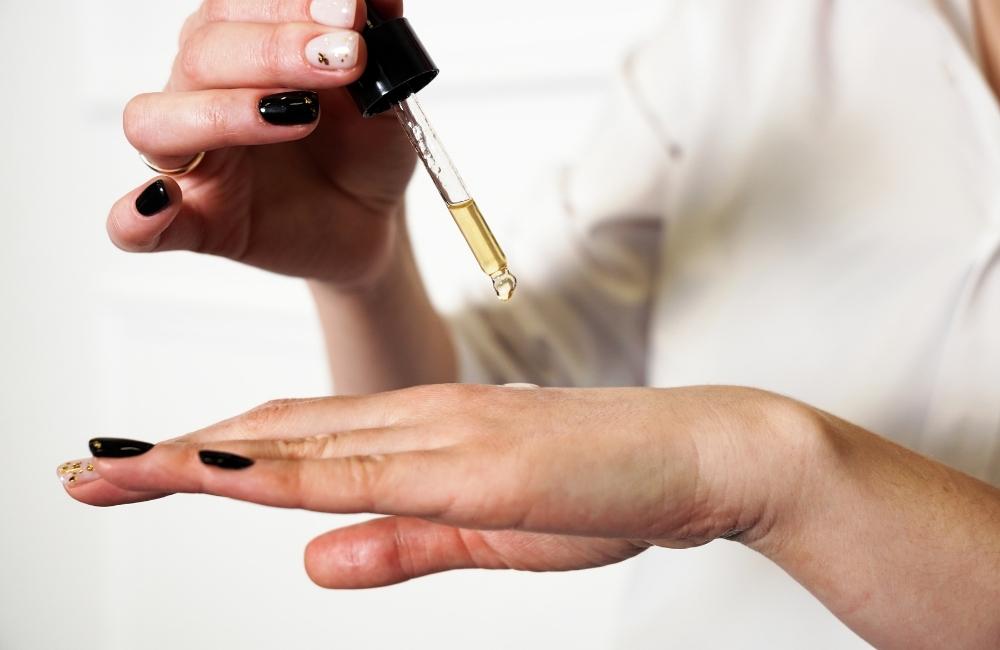
Essential Oils for Dry Skin
When certain seasons come around, or if there’s a dry climate, the skin might dry out. Also, you might develop dry skin as you age or as the glands that produce oil are less active.
While creams and moisturizers are common treatments for dry skin, certain essential oils may offer relief.
Sandalwood
Sandalwood oil’s warm, soothing, and fragrant scent has long been associated with its skin-healing properties.
Moreover, the skin-repairing oil has anti-inflammatory properties, which can help to reduce the appearance of dry patches and inflammation while restoring balance and moisture to the skin.
Sandalwood oil has a variety of therapeutic uses, including treating psoriasis and eczema.
Ylang Ylang
The ylang ylang flower essential oil contains chemicals that reduce inflammation while hydrating the skin.
As an essential oil, it has a relaxing, calming effect that can reduce irritation, redness, and excessive oil production.
Because oily, acne-prone skin tends to have broken capillaries, ylang-ylang oil also gives the skin a radiant glow, helping to reduce the look of redness and scarring.
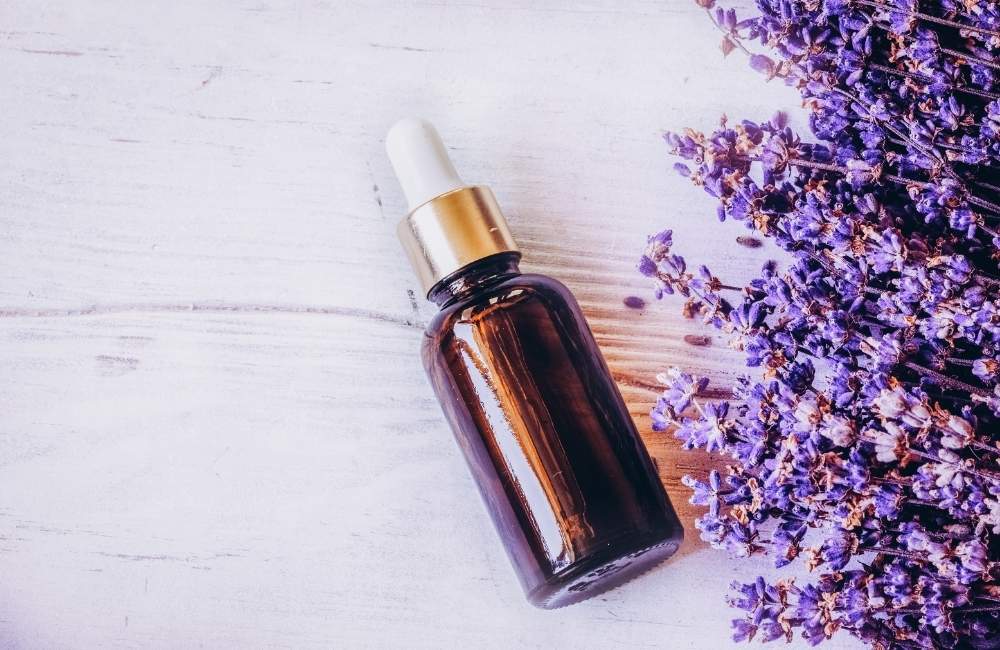
Lavender
While you may have heard of lavender being used for sleep and relaxation, this multifunctional oil may also help regulate your skin’s moisture levels while treating rashes.
Lavender is an excellent essential oil for the face it naturally moisturizes dry skin with its fatty acids.
Also, it works as an anti-inflammatory, reduces redness, and is a natural hydrator, repairing dry skin without making it oily.
Myrrh
Your skin craves moisture when it is dehydrated, and myrrh essential oil delivers it.
A rich source of antioxidants and anti-inflammatory properties, it soothes, protects, and repairs damaged skin.
Additionally, myrrh oil can stimulate the production of new skin cells to regenerate damaged skin.
Chamomile
Chamomile oil includes azulene, well-known for its moisturizing and soothing properties.
The anti-inflammatory oil can be used to lighten the appearance of existing acne and prevent future breakouts. It also helps alleviate sunburn.
However, if you have ragweed allergies, you may wish to avoid it since chamomile may act as a trigger.

Essential Oils for Oily Skin
Having oily skin means your sebaceous glands are working to the fullest capacity, resulting in excessive oil production on your skin’s surface. Often, oiliness is caused by humidity, heat, and hormones.
Keeping the skin clean and oil-free is important to prevent acne and other skin problems.
When applied to oily skin, these essential oils will balance moisture levels, reduce oil production, and prevent acne and other skin problems.
Clary sage
Clary sage essential oil can effectively control excess sebum thanks to active ingredients like linalyl acetate and geranyl.
With it, you can control oil production, reduce the size of your pores, and even clear up blemishes.
Additionally, clary sage may help reduce wrinkles and acne in older skin.
Rosemary
The anti-inflammatory, stimulant, and analgesic effects of rosemary oil are well-known.
By regulating sebum production, it can help to reduce the appearance of blackheads and acne.
Moreover, rosemary oil is naturally antiseptic, which allows it to help heal blemishes.
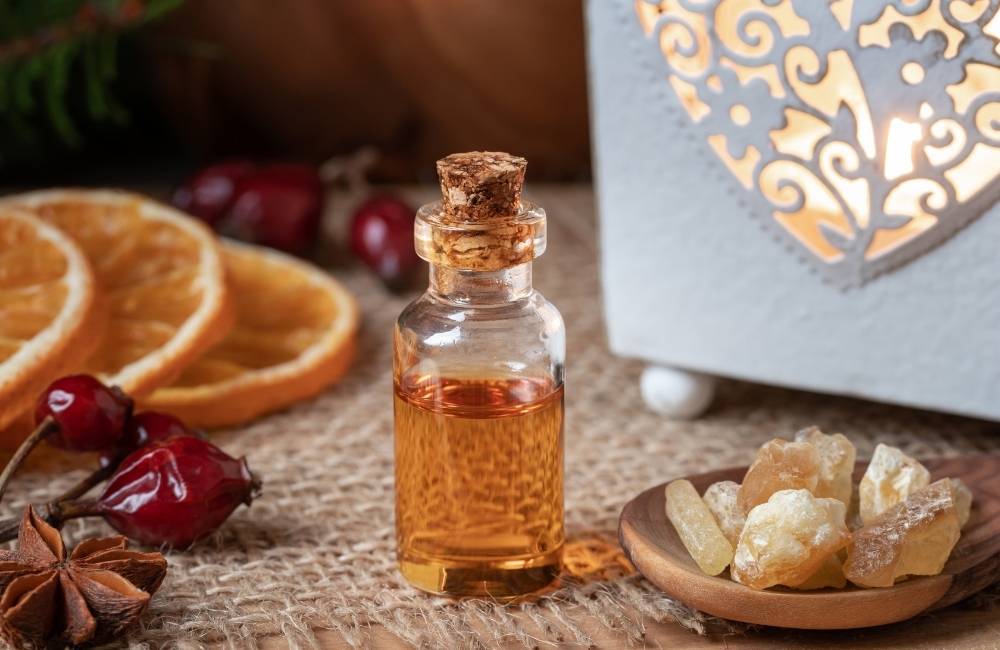
Frankincense
The benefits of Frankincense include alleviating oily skin and acne-prone skin as well as lubricating aging skin.
Plus, it’s packed with antioxidants that protect the skin from damaging free radicals. As a result, Frankincense oil improves the complexion, clarity, and texture of the skin.
Geranium
A major benefit of geranium is that it’s alkaline, which helps control skin oil. One of the best essential oils for the face, it effectively controls oil production and keeps skin looking young and bright.
Additionally, geranium oil is an astringent that exfoliates the skin and tones the pores, so it’s a go-to for oily complexions.
Neroli
Neroli is another citral-containing essential oil.
Being high in antioxidants, neroli oil effectively reduces sebum production without drying out skin, which is great news for oily skin types!
The essential oil is great for soothing inflammation and improving skin texture. The oil’s floral scent may help manage oiliness symptoms and improve skin complexion.

Essential Oils for Sensitive Skin
As highly concentrated extracts from plants, essential oils can negatively affect sensitive skin due to their potency. For sensitive skin, steer clear of highly acidic oils like lemongrass, bergamot, and lemon, which can aggravate the skin.
However, here are some essential oils that you won’t worry about irritating your skin.
Eucalyptus
The anti-inflammatory, analgesic, and antimicrobial properties of eucalyptol in this essential oil help calm skin redness.
Some studies show the oil may even increase ceramide production to hydrate skin and prevent collagen degradation from UVB exposure.
Aside from that, it also seems to help treat eczema and acne flareups, promote wound healing, and relieve minor cuts and scrapes.
French lavender
French Lavender is known for its relaxing scent, and many cosmetics companies incorporate it into their products.
Although the oil soothes the skin, you can also use it to reduce inflammation, balance the skin’s natural oils, and fight acne.
When used topically, lavender oil can help relieve itchy skin and eczema symptoms, as well as reduce swelling.
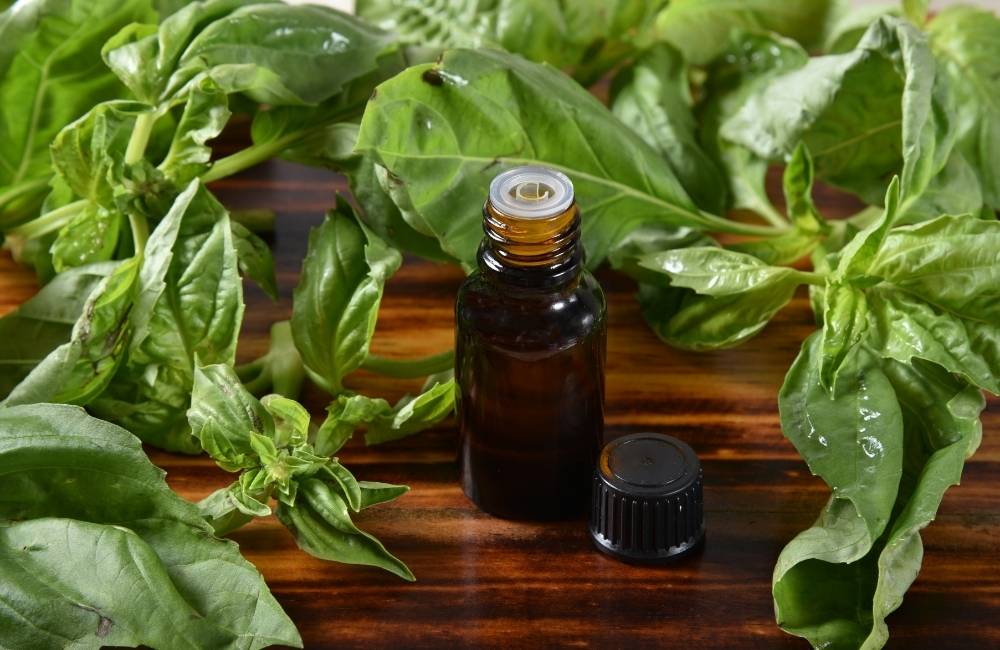
Basil oil
Those with sensitive skin may find that basil oil provides relief from itchiness, redness, and other signs of sensitivity.
As an anti-inflammatory and antioxidant, basil oil protects the skin from environmental damage and reduces inflammation. Aside from that, its herbal scent can help to relax and calm the mind.
Helichrysum
Helichrysum oil has healing properties, which can help to reduce the irritation that often accompanies sensitive skin. Also, it lessens the look of acne scars.
If you’re pregnant or allergic to ragweed, don’t use this oil.
Tea Tree
According to research, tea tree oil can reduce redness and inflammation from rosacea when applied as a gel.
The anti-inflammatory nature of tea tree oil makes it helpful in treating psoriasis and sunburn. Additionally, a moisturizer with tea tree oil can help reduce eczema flare-ups.
Mixing tea tree oil with olive oil, coconut oil, or almond oil can make it safe for sensitive skin.
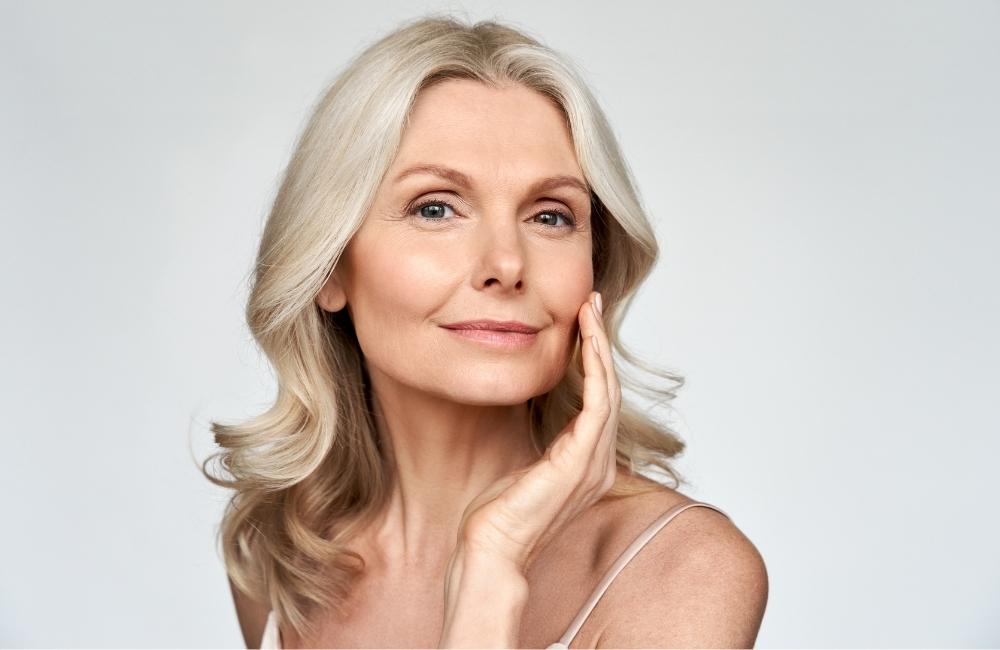
Essential Oils for Aging Skin
Over time, our skin cells thin, become drier and are generally less resilient. These factors, along with UV rays, pollution, and stress, can accelerate the aging process.
Fortunately, these essential oils for aging skin have the power to counteract the effects and slow down the natural aging process.
Rose
Rose essential oil is one of the most beautiful oils we all know.
Besides being a potent anti-inflammatory and antioxidant, it also fights free radicals that cause aging. Plus, it gives you an age-defying glow.
Also, rose oil could be beneficial for skin cell renewal, keeping the skin looking taut and youthful for longer.
Tangerine
Tangerine’s essential oil contains vitamin C (an antioxidant that fights free radicals), so it may help slow down aging.
The skin glows, too, because it boosts collagen and blood flow. It can also battle environmental toxins, which can cause premature aging.
Carrot Seed
The benefits of using carrot seed oil for aging skin include:
- Lightening dark spots and discolorations.
- Boosting collagen production.
- Softening wrinkles.
- Making pores look smaller.
Those with sensitive skin will also find the oil a good choice since it is non-irritating and gentle.
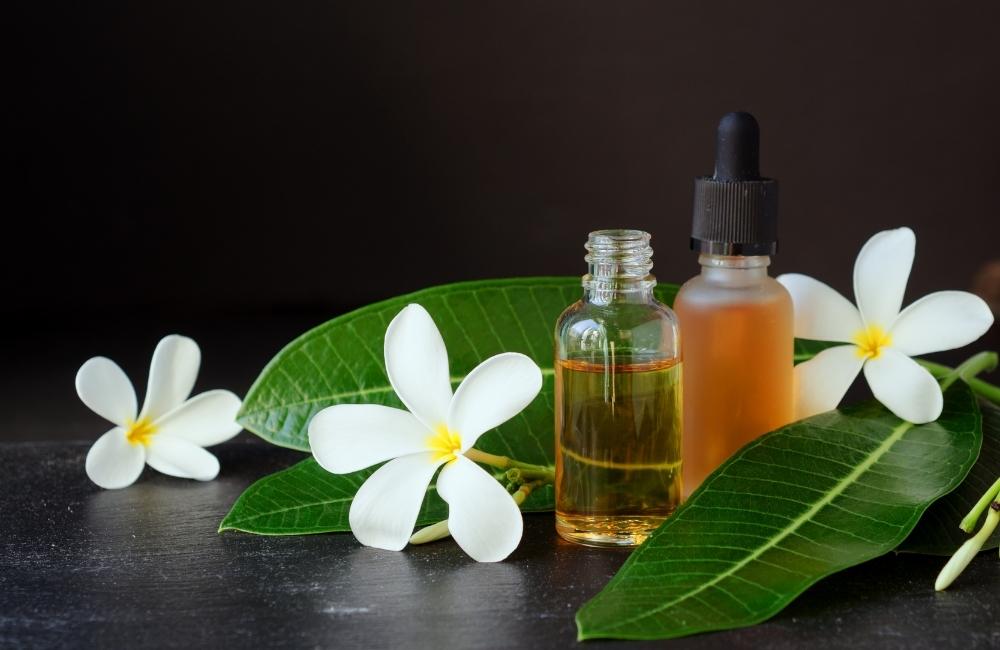
Patchouli
A potent antioxidant, patchouli oil is ideal for aging and damaged skin.
In a study, the researchers found that mice treated with patchouli oil had less wrinkle formation and higher collagen levels. However, further studies will be needed to determine whether the same benefit can be observed in people.
Pomegranate
Vitamin A, C, and fatty acids in the oil help to minimize the appearance of wrinkles and fine lines and restore a youthful glow to the skin.
A unique compound in pomegranate oil called punicic acid promotes regeneration while improving the skin’s elasticity.
Skin Disorders that Essential Oils Can Heal Naturally
Researchers are looking into how essential oils help treat a variety of skin disorders, like:
Eczema
Eczema is an itchy skin condition that affects 15% to 30% of kids and 2% to 10% of adults. When eczema occurs, a person’s skin becomes:
- Dry
- Itchy
- Cracked
- Sore
- Dry skin
Despite the lack of studies, essential oils may benefit dry skin. Nevertheless, some essential oils may benefit dry skin in general if they are helpful for eczema. The reason for this is that eczema symptoms include dry skin.
Itchy skin
Chronic pruritus is a skin condition in which an individual experiences chronic itching. The condition can be quite unpleasant, and its treatment can be challenging.
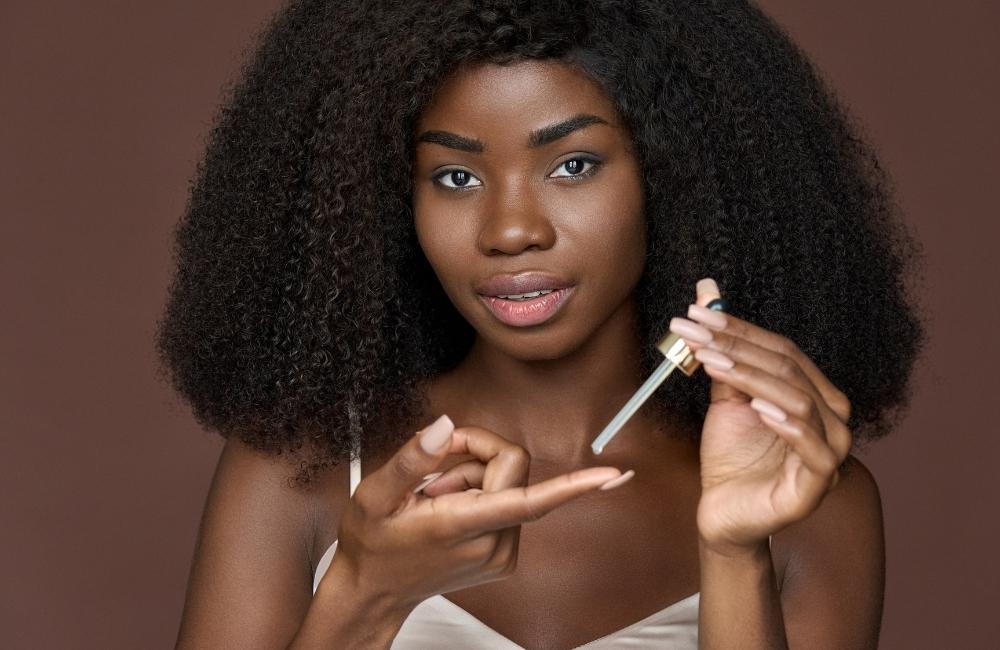
How to Use Essential Oils for Skin
A growing number of people are turning to aromatherapy for beauty purposes, and this includes skincare. Here’s how you can put your favorite essential for skin to use:
1. Pick the right oil. Not all essential oils are created equal. Some oils are better suited for topical application, while others are better suited to aromatherapy or internal application. Do your research and choose an oil specifically meant for topical use on the skin.
2. Dilute the oil. Most essential oils need to be diluted before topical application. When using an essential oil topically, the best practice is to dilute the oil with a safe carrier oil. For example, coconut oil may be used as a carrier for lavender or peppermint oils. If you have sensitive skin, start with just one or two drops of oil and increase the amount gradually over time.
3. Add a few drops to your moisturizer or body lotion.
4. Mix a few drops of oil with water and use it as a facial toner. This will help reduce inflammation, promote healing, and tighten pores.
5. Make your own skincare products by blending essential oils with carrier oils or other ingredients.
6. Massage oil into your skin. This helps with circulation, improves elasticity, reduces inflammation, and helps to improve skin tone and texture.
7. You can also add essential oils to your bath water or use them in a diffuser.
Final word
Using these essential oils for skin is a wonderful way to nourish and enhance its health.
From anti-aging to combating oiliness, different oils work best for different skin types and concerns, so it is important to do your research and find the right oil or blend of oils for your beauty routine.
Before you apply a new oil to your entire face, test it on a small patch of skin, and discontinue use if you experience irritation.




